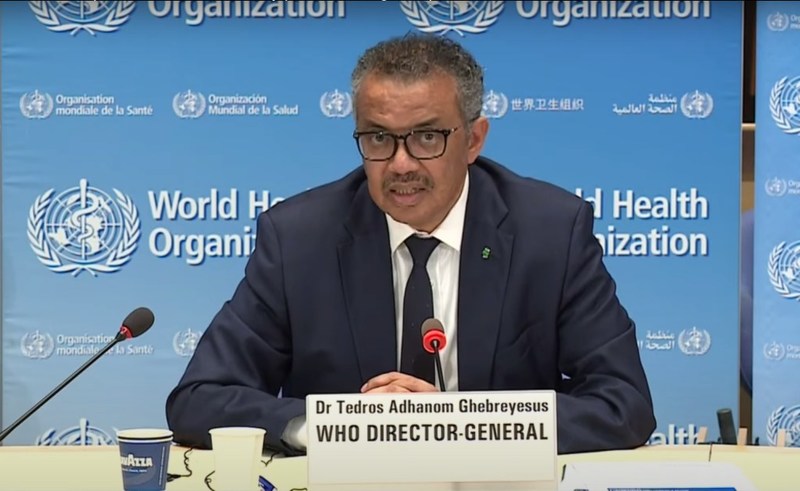
On Wednesday, 13 May, the World Health Organization warned global citizens that Covid-19 may never go away, but that people around the world will have to maintain hope and be more resistant as Covid-19 has taught us about handling the pathological crisis in the future.
As some countries around the world begin gradually easing lockdown restrictions imposed in a bid to stop the novel coronavirus from spreading, the WHO said it may never be wiped out entirely. Since the virus first emerged in Wuhan in China late last year, the new disease has infected more than 4.5 million people and killed nearly 300,000 worldwide.
"We have a new virus entering the human population for the first time, and therefore it is very hard to predict when we will prevail over it. This virus may become just another endemic virus in our communities and this virus may never go away," told Michael Ryan, Executive Director of WHO Health Emergencies Programme at a virtual press conference in Geneva.
Michael Ryan refers to the current pandemic with the common emergence of HIV as the virus that still becomes a global concern until today. "HIV has not gone away — but we have come to terms with the virus," Ryan said.
More than half of humanity has been put under some form of lockdown since the coronavirus crisis began. but the WHO warned there was no way to guarantee that easing the restrictions would not trigger a second wave of infections.
"Many countries would like to get out of the different measures but our recommendation is still the alert at any country should be at the highest level possible," according to WHO Director-General Tedros Adhanom Ghebreyesus.
Need a Long time to Recover until the Vaccine is Available

With the current research and analysis of the development of the coronavirus, WHO also stated that there is a "long, long way to go" on the path to returning to normal, insisting that countries would have to stay the course. Currently, WHO has seen the threat of the second wave of the coronavirus and the possibility of infection in the same individual who has just recovered from the disease. Some of the nations also reported the variety of the mutation of the virus, which needs all researchers and health practitioners around the world to look further to the emergence of the virus while preparing to make vaccines available worldwide.
Tedros Adhanom Ghebreyesus also emphasised the impact of the virus on the global population. "COVID-19 is bringing out the best in us, but it's also bringing out some of the worst," he said.
Ghebreyesus insisted that finding a way to conquer the virus was a chance for humanity to take a major step forward by finding a vaccine and making it widely accessible.
In the meantime, scientists, researchers, as well as health practitioners have put tremendous effort to develop a vaccine for Covid-19. Besides the global health agency, Indonesia also contributes to the research in finding the vaccine for the virus including the development of therapeutic plasma taken from ex-patients of Covid-19.
Remember, we are in this together!
The article is adapted from Agence France-Presse and the official VHO Virtual conference.







